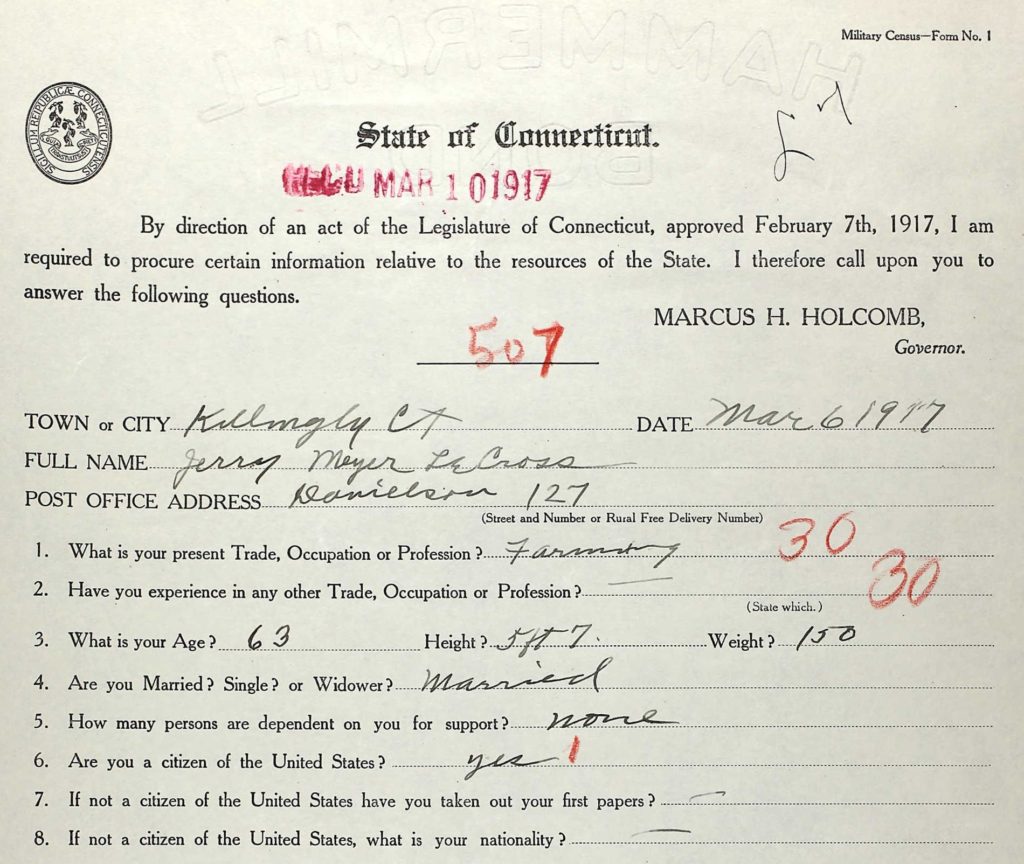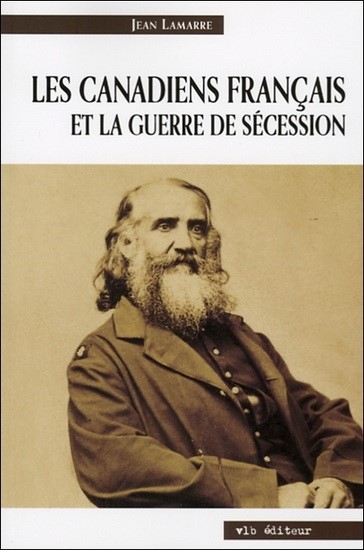Mark your calendars! On May 21, at noon (Eastern time), I will deliver a lecture as part of the Vermont Historical Society’s Third Thursday program. At the moment, the plan is to offer access on Zoom. The talk is titled “The Other Franco-Americans: Tracing French-Canadian Settlement in Vermont.” You can find more info on the VHS’s social media pages. In addition, on May 18, I will be speaking virtually on Franco-Irish religious conflict in the Northeast thanks to the Franco American Programs at the University of Maine. The link will be available shortly before the event through the Franco American Programs.
It may seem strange, after decades of sustained research, to suggest that there is a lot we do not know about Franco-Americans. Don’t we have surveys, monographs, and biographies; dozens of theses and dissertations; and maybe a hundred journal articles on the subject? Well, it would be immodest for any scholar to claim the final word; it would be an abdication to collectively assume that the tale has been told in full. For indeed some primary source collections have barely been touched by researchers and there is always the possibility of reconsidering existing sources and narratives in light of new methods and new conceptual insights.
In that spirit, while I make my small contributions, I’m issuing an invitation and a challenge to enterprising graduate students, fellow scholars, and enthusiastic amateur historians. The following are ideas for further research that might meaningfully advance our understanding of the Franco-American past. Each could potentially amount to a book-length project, but any foray would prove valuable. (Readers may also want to see my lists of must-read monographs and scholarly articles!)
Franco-Americans and Polish Americans in Historical Perspective
French Canadians’ experience in the United States was and is unique in many respects. But something may be lost in exaggerating Franco-American exceptionalism—including insights that come from comparing and contrasting the experience of different ethnic groups. Remarkably, little work has been done in this regard except in broader community studies that can be sparing in the amount of detail. Other scholars have explored the Franco-Irish connection in the Northeast, but the Irish are often depicted in a cartoonish guise with little attention to what was happening in their community at the same time.
There would be considerable value in a comparative study of Franco-Americans and Polish Americans not least due to their similar religious and cultural concerns. Polish immigrants had their own version of survivance, which led to clashes with bishops in New Hampshire, other parts of New England, and the Midwest. How did each group navigate the challenges of the industrial economy and the American urban landscape? Some in-depth study of other groups might help us better define the unique circumstances of Francos and the opportunities for common endeavors with fellow ethnic Americans.

The Franco-Americans of Connecticut
As some regular readers have argued, there is less and less of New England in Connecticut—at least western Connecticut. But the state does have a fascinating Franco-American past that too often stands on the margins of a larger narrative. French-Canadian immigrants were dispersed across the state and less endowed with a cohesive middle class, an organizational network, and a French-language press. The realities of Francos in the state haven’t been as instantly accessible to scholars. But historians have found enough of the standard experience (“steeples and smokestacks”) to make assumptions based on other locations and to ostensibly include Connecticut in their surveys.
Without diminishing the work of the few who have focused more intently on the state, the time has come to dig deeper—to really understand local dynamics in Norwich, Waterbury, Grovesnordale, Putnam, and so forth. I think we would instinctively assume that the Franco experience in Manchester, New Hampshire, would have differed substantially from that of Norwich; let’s explore that further.
Pioneers: French-Canadian Migrants and Immigrants, 1820-1860
In the realm of Franco-American historical writing, most big works devote a few pages to the 1840s and 1850s before moving on to the Little Canadas that are more recognizable. We do have studies of migration and demography (Ralph Vicero’s landmark dissertation, notably) that focus more intently on the pre-Civil War period, but we sometimes miss a better sense of individual and local experiences.
A work on the early decades of French-Canadian immigration to the Northeast—heck, let’s throw in Michigan, Wisconsin, Illinois, and California—could stretch to hundreds upon hundreds of pages. Expatriates in this period were the adventurous pioneers who developed the migration fields that slowly morphed into a vibrant network of Franco-American communities and organizations through the nineteenth century, figures of no small consequence. A book of this kind would easily flow into Jean Lamarre’s really impressive work on French Canadians in the U.S. Civil War and the survey works I alluded to.

America North: Effects of French-Canadian Emigration in Quebec
French Canadians left their mark on the U.S. Northeast in ways perhaps too many to count. Those who left also had a tremendous impact on their native land. Scholars have certainly paid attention to the paradoxical language of Quebec elites, who sometimes celebrated the extension of the patrie and often denigrated the emigrants. We also know about policy proposals—especially repatriation schemes and colonization dreams. But there is much more to the effect of emigration from the province.
What do we know about the scale of remittances sent to family members or to creditors in Quebec? Was there a cultural feedback loop between the U.S. and Quebec as migrants returned (temporarily or definitively)? Was there a recognizable Americanization of culture, mores, consumption habits, or material culture north of the border specifically because of this immigrant connection? Despite what some historians might seem to suggest, Quebec society changed considerably from the 1850s to the 1930s—we may wonder whether some of that transformation was a result of, or a reaction to, that Franco-American influence.
Breaking Through: The Making of the Franco-American Middle Class
This may be the more contentious of my calls for further research. Many first-person sources we have from Franco-Americans were written by clergymen, editors, attorneys, and other figures who belonged to the middle class. Thus we may have a sense of their cultural activities and vision—maybe less about their actual economic circumstances, their willingness to meet American standards of bourgeois respectability, and the educational and professional prospects of their children. We also happen to know much more about professionals than Franco-American businessmen. François Weil has perhaps done the most in these directions; we can build upon his work.
The related question is that of socioeconomic mobility. How did opportunities for advancement evolve over the course of generations? How did people work their way out of the mills—or change course when mills closed on them, or when the family farm was no longer viable? Many Franco-Americans today may have a sense of their family history in this regard and oral interviews might be used quite profitably, with census returns and municipal tax rolls, to better represent this side of the Franco story.
How would you like to see the field of Franco-American history expand? Comment below or on social media!
Some readers are no doubt already aware of Claire Quintal’s recent passing. Professor Quintal, the long-time director of the French Institute at Assumption College, has left a rich legacy. Having lost Yves Roby last summer, we now grieve the loss of a scholar whose contribution to French American culture stands nearly unequaled. Those of us who seek to explore and share the Franco-American story stand in the shadow of this giant. Those who wish to learn more about Quintal will find a fascinating overview of her life in a Rabaska article edited by Robert Perreault.
Leave a Reply